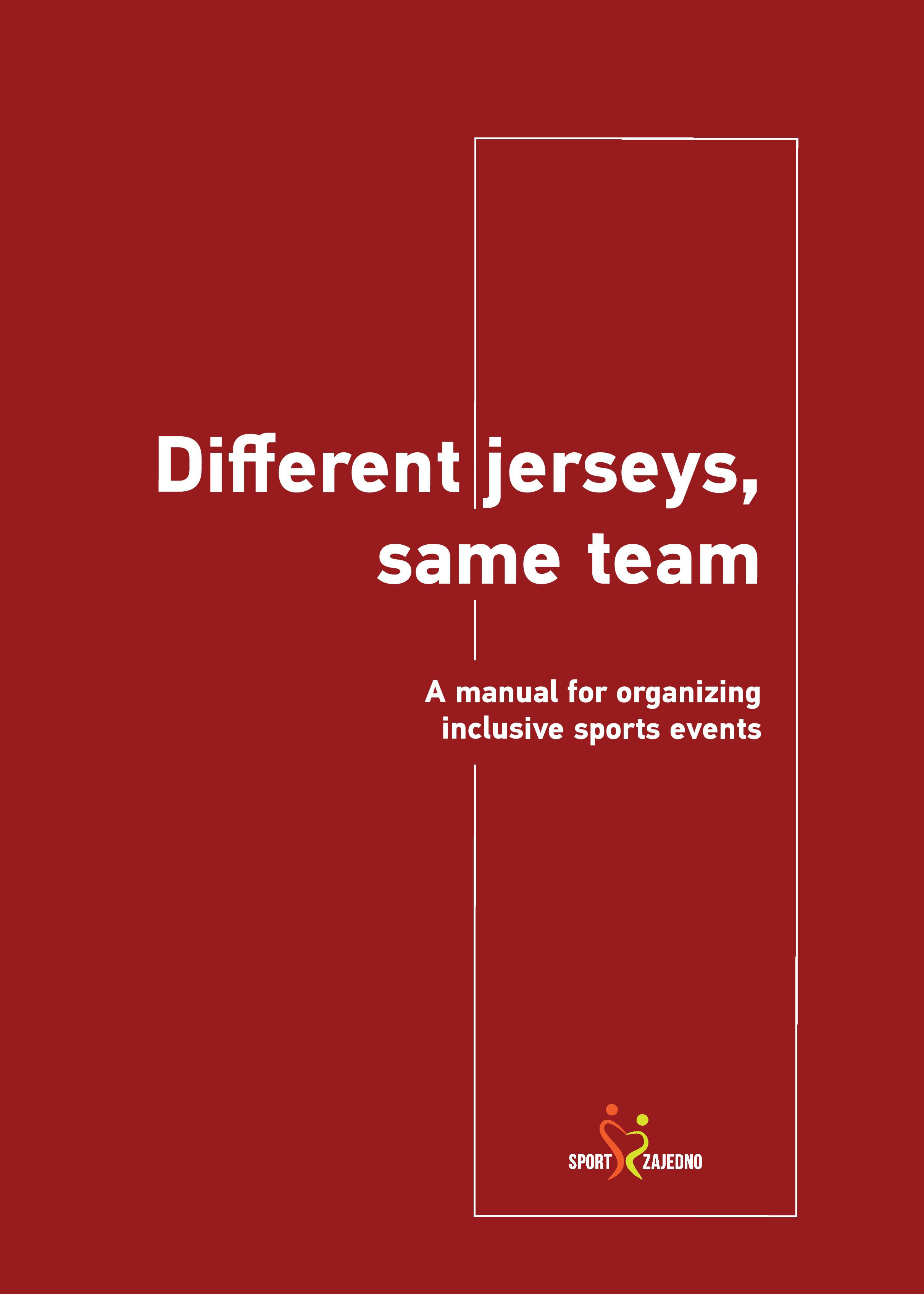Hotline: +381 61 63 84 071
Different jerseys, same team

Handbook for organizing inclusive sports events
The publication "Different Jerseys, Same Team" was created from the belief that sport has the power to connect people, break down prejudice, and build spaces of togetherness where differences have often drawn dividing lines. Through sport, we learn the values of solidarity, fair play, cooperation, and respect, as well as equal opportunities for all, regardless of origin, gender, nationality, social status, or migration background.
This handbook is the result of a joint effort between the Vienna Institute for International Dialogue and Cooperation – Fair Play Initiative (VIDC – fairplay initiative), NGO Atina (Serbia), Football Club Zagreb 041 (Croatia), Let’s Play Together Initiative (Bosnia and Herzegovina), Youth Initiative for Human Rights (Montenegro), and Women’s Football Club Prishtina (Kosovo).
Together, these organizations joined forces through the project “Sport Together - Promoting Social Inclusion and Reconciliation through Local Youth Sports Initiatives” to show how sport can become a space for dialogue, trust, and peacebuilding, especially among young people growing up in societies marked by conflict, migration, and inequality. The organizations behind this handbook have, for many years, utilized sport as a tool for social inclusion of marginalized groups and the restoration of trust among communities in the countries of the former Yugoslavia, where the legacy of the 1990s conflicts remains a persistent presence in interethnic relations.
The publication provides practical guidance and tools for planning and implementing sports events that are genuinely inclusive, from mapping community needs and setting goals to designing programs, forming teams, and evaluating results. It also includes examples of good practices from across the region that demonstrate how sport can inspire mutual understanding, solidarity, and collective spirit.
Among these examples is the Sports Festival in Bujanovac, organized by the NGO Atina, which brought together more than 100 children and young people from Serbian, Albanian, Roma, refugee, and migrant communities. The event demonstrated that sport is not just a game; it is a space where borders disappear and belonging takes root.
Speaking about the publication, Zorana Parezanović from NGO Atina noted: “Through years of cooperation and experience exchange, we realized that the knowledge gained from organizing sports events, especially that which addresses barriers and opens up spaces for everyone’s participation, must be consolidated and passed on. This is how the Sport Together project was born. In each partner country (Austria, Serbia, Croatia, Bosnia and Herzegovina, Montenegro, and Kosovo), we gathered sports practitioners who now share this experience through education, mentorship, and practice. This handbook combines theoretical and practical insights from these trainings, as well as examples of inclusive sports events held between May and July 2025. We believe it will serve not only those who took part in the project but also anyone who wishes to use sport as a tool for connecting people and building more open and inclusive communities.”
This handbook is designed for coaches, teachers, youth workers, civil society organizations, and local communities that aim to utilize sport as a vehicle for social change and inclusion. It promotes not only physical activity but also empathy, solidarity, gender equality, and intercultural dialogue.
Through this work, we reaffirm what we have believed for over two decades, that every person, regardless of background, deserves a safe place on the team. Although we wear different jerseys, we all play for the same team.
The initiative “Sport Together – Promoting Social Inclusion and Reconciliation through Community Sport” is supported by the European Union and the Erasmus+ Programme, and aims to promote inclusion, equality, and reconciliation among young people across the Western Balkans.












 FACEBOOK
FACEBOOK TWITTER
TWITTER YOUTUBE
YOUTUBE